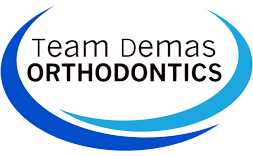Because of its all-around movement, which involves moving back and forth, up and down, and side to side, the jaw’s temporomandibular joint is arguably one of the most complex joints in the human body. For many people, dismissing abnormal jaw pains is a common tendency, unless the pain is either severe or persistent. Unfortunately, almost every single type of jaw pain indicates an issue with the jaw’s functionality, which includes movement when talking or chewing. Depending on the cause, you might have to seek the services of an orthodontist to treat some of the pains experienced in the jaw. Knowledge of the various factors that induce or contribute to odd jaw pains is, therefore, necessary.
Causes of Abnormal Jaw Pains
Since moving the jaw around involves a variety of joints, muscles, bones, and tendons, so many different things can go wrong. Although simple cases such as overworking the joints are among the causes of abnormal jaw pains, most types of jaw pains are caused by more severe issues including:
Structural Disorders and Fractures
Fractures and other skeletal disorders could be the result of an assault, accidents, or underlying diseases, and they usually stress the entire jaw since it loses alignment. Such disorders will almost always result in dull and constant pains in the jaw, inflammation, numbness, and even deformity. The occurrence of any jaw disorder necessitates seeking immediate medical attention, preferably from an orthodontist.
Teeth Grinding
Although many people grind their teeth subconsciously, teeth grinding is arguably the most common cause of jaw pains. Bruxism, commonly referred to as teeth grinding, is medically described as the slow, back and forth movement of clenched teeth against one another. Since bruxism typically occurs while patients are asleep, most of them are usually unaware that they have this condition. Apart from wearing down teeth over time, grinding them together will eventually damage the jaw’s joints. Crooked teeth and abnormal bites are the most common causes of bruxism, both of which you can fix by seeking the services provided by your local orthodontists.
Temporomandibular Joint Disorder (TMJ)
As a disorder between the temporal bones and your jaw, the occurrence of temporomandibular joint disorder usually results from frequent overuse of mastication muscles, malformed joints, slipping connective tissues, muscle tension, crooked teeth, and even teeth grinding. You are likely to notice a popping or clicking sound every time you open or close your mouth if the jaw joint happens to slide out of place. Temporomandibular joint disorder leads to temporal stiffness of the jaw, abnormal jaw mobility, dizziness, tinnitus, and severe headaches.
The Top 10 Orthodontic Facts
Arthritis
Although it mostly occurs in finger or leg joints, arthritis is characterized by the inflammation of any joint in the body, which includes jaw joints. Arthritic jaw inflammation often leads to the swelling and gradual degradation of temporomandibular joints, which is extremely painful. The misaligned teeth caused by degenerating joints can only increase the pain. Unfortunately, the jaw bone might fuse to the skull if left untreated, making it almost impossible to move the jaw.
Stress
Stress is frequently undiagnosed as a cause of abnormal jaw pains. Accumulated fatigue, lack of adequate sleep and rest, work, family, and a host of environmental factors contribute to high levels of stress. Although generally viewed as a mental issue, stress has profound physical effects. Stress causes muscle tension, which often leads to neck or jaw pains. Subconsciously clenching teeth together due to stress often leads to tense facial muscles, including jaw muscles. Tense facial muscles cause painful dull throbs in the jaw, shooting pains due to slight movement of the jaw, and at times, severe headaches.
How to Treat Abnormal Jaw Pains
Knowing the different treatments that deal with odd jaw pains is important since there are several options available today, some of which could be relatively less applicable or effective. For example, although popping over the counter painkillers might dull the pain, it is only a temporary measure. Finding an efficient and more permanent treatment takes a little bit more time. Consulting an orthodontist to determine the cause is the first step towards figuring out how to treat abnormal jaw pains.
Medications
Although most drugs dull the pain, a few types relax tense muscles, helping to eliminate some of the causes. As a result of the variance in the factors that cause abnormal jaw pains, using medication as a remedy for the pain is one alternative. As such, doctors sometimes prescribe certain drugs to help with jaw pains. Although many people take over-the-counter painkillers as a remedy, painkillers can only address the symptoms and not the root cause of jaw pains. Additionally, overuse of painkillers often results in severe health hazards such as kidney necrosis and liver failure. Seeking a proper prescription from a qualified orthodontist is, therefore, advisable.
Lifestyle Changes
Simple lifestyle changes can at times fix jaw pains. Resting the jaw by refraining from chewing and talking constantly helps to fix several types of jaw pains. Resting to relieve stress and identifying soft foods to avoid the strain of chewing are prime considerations for nursing jaw pains. Massaging the affected area and applying hot and cool compresses on a regular basis also provide significant relief. As ways of alleviating jaw pains, these home remedies mostly assist when a patient is not experiencing severe pain. It is advisable that you seek help from an orthodontist if the pain persists.
Surgery
Surgery is exclusively recommended for severe cases, those that cannot be treated otherwise. In addition to major dental and skeletal irregularities, surgeries can be necessary to correct temporomandibular joint disorders. These surgical treatments are performed by professional orthodontists to help improve breathing, chewing, and speaking. Only when the jaw is either severely degraded or stuck in one position can doctors use some surgical procedures such as open joint repair and restructuring surgery.
You most certainly will benefit from consulting a professional orthodontist regardless of the type of jaw pain you might be experiencing. Contact us to learn more about how to relieve your pain.
Team Demas Orthodontics
27 Meriden Ave #2a, Southington, CT 06489, USA
Phone: 860-276-0333



